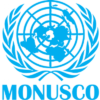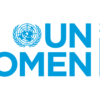Job Summary:
The United Nations Organization Stabilization Mission in the Democratic Republic of Congo (MONUSCO) is an integral part of the UN’s efforts to bring peace and stability to a region marred by conflict and instability. Within this mission, the role of a Civil Affairs Officer is of paramount importance. This position is located in Goma, a city in the Democratic Republic of Congo, and is tasked with addressing a wide range of political, social, and economic issues that affect conflict dynamics at the local and regional level. In this comprehensive exploration, we delve into the responsibilities, qualifications, and significance of the Civil Affairs Officer role within MONUSCO.
Responsibilities of the Civil Affairs Officer
The Civil Affairs Officer in MONUSCO plays a multifaceted role in contributing to peace, stability, and development in the region. The responsibilities encompass several critical areas:
1. Analysis and Information Dissemination
One of the key functions of a Civil Affairs Officer is to provide timely and accurate analysis of political, social, and economic issues that impact conflict dynamics. This analysis serves as a foundation for informed decision-making by the mission and other relevant actors. The officer ensures that the concerns and perceptions of the local population are effectively communicated to the mission and other relevant stakeholders. This two-way communication is vital for understanding the ground reality and crafting effective strategies.
2. Local Representation
The Civil Affairs Officer often represents the mission at the local level when required. This representation involves engaging with local authorities, civil society organizations, and community leaders. The officer serves as a liaison between the mission and local stakeholders, fostering effective working relations. This role is crucial for building trust and collaboration with local actors.
3. Coherence and Consistency
Maintaining coherence and consistency in approach among various mission actors is essential for achieving mission objectives. The Civil Affairs Officer contributes to a shared understanding of the mission’s environment, mandate, and operations among different mission components, particularly uniformed units. This coordination ensures that everyone works towards common goals and avoids conflicting approaches.
4. Recommendations and Mobilizing Responses
The officer is involved in formulating recommendations concerning mission actions and approaches required at the local level. These recommendations are often developed in consultation with local stakeholders and are based on the analysis of the local context. Additionally, the officer plays a role in mobilizing responses from other actors, such as humanitarian organizations, when their involvement is deemed necessary.
5. Quick Impact Projects (QIPs)
Quick Impact Projects are an integral part of the Civil Affairs Officer’s responsibilities. These projects are designed to build confidence and trust among local communities. The officer manages individual QIPs, aligning them with mission-specific priorities and policies. The successful implementation of QIPs can have a positive impact on the local population, contributing to stability and peacebuilding.
6. Supervision and Support
The officer has supervisory responsibilities, which include monitoring and encouraging the work of staff members under their purview. Ensuring that the team undertakes their duties effectively and efficiently is essential for the smooth operation of Civil Affairs activities.
Protection of Civilians
A critical aspect of the Civil Affairs Officer’s role in MONUSCO is the protection of civilians. This includes:
7. Identifying Threats and Prevention
Working closely with peacekeepers, local security forces, and authorities, the officer identifies threats to civilians. This involves a comprehensive assessment of potential risks, including human rights violations, abuses, and sexual and gender-based violence. Preventive measures are then developed and implemented to mitigate these threats.
8. Community Engagement
Engaging with local communities is crucial for raising awareness about MONUSCO’s mandate and activities related to protecting civilians. The officer facilitates interactions between the mission and local populations, ensuring that civilians understand their rights and the mission’s role in safeguarding them.
9. Early Warning Mechanisms
The Civil Affairs Officer strengthens local early warning mechanisms to detect and respond to potential conflicts or security threats. This includes efforts to prevent disinformation campaigns and misinformation, which can undermine the mission’s credibility.
10. Mediation and Conflict Resolution
Supporting local mediation efforts and countering hate speech, disinformation, and misinformation are essential components of the role. Mediation can help resolve conflicts at the local level, contributing to peace and stability.
11. Joint Assessment Missions and Protection Teams
The officer plays a key role in organizing and participating in Joint Assessment Missions and Joint Protection Teams (JPT) missions. These initiatives involve collaboration with other sections of MONUSCO, protection actors, humanitarian partners, and development organizations. The goal is to assess the situation on the ground, identify vulnerabilities, and take collective action to protect civilians.
12. Protection Plans and Accountability
The officer contributes to the development of local protection plans, including early warning mechanisms. Monitoring and follow-up to ensure the implementation of these plans are vital tasks. Accountability mechanisms are established to track progress and ensure that protection activities are effective.
13. Support to Partners
The Civil Affairs Officer supports logistics needs for humanitarian, civil society organizations (CSOs), and local authorities, ensuring they have the necessary resources to fulfill their roles in implementing the mission’s protection mandate.
14. Community Liaison and Committees
Managing Community Liaison Assistants (CLAs), Community Alert Networks (CANs), Local Protection Committees, and Community Protection Plans is another significant responsibility. These mechanisms facilitate communication and collaboration between the mission and local communities.
Conflict Management
In addition to civilian protection, the Civil Affairs Officer plays a role in conflict management. Key functions include:
15. Dialogue Facilitation
Supporting dialogue between groups in conflict within the area of responsibility is crucial. This involves convening structured meetings and similar activities to facilitate communication and understanding among conflicting parties.
16. Advocacy and Protection of Vulnerable Groups
Advocating for the interests of excluded and threatened groups is another essential aspect of the role. This advocacy must always adhere to humanitarian and international law, ensuring that the rights and well-being of vulnerable populations are protected.
17. Support for Civil Society
Civil Affairs Officers extend support to civil society groups and institutions at the local level. These groups often play a critical role in promoting peace, reconciliation, and a culture of coexistence. Officers leverage their knowledge of local language and culture to engage effectively with these groups. When appropriate, they help civil society entities become effective implementing partners for Quick Impact Projects.
Support to State Institutions
Civil Affairs Officers are instrumental in supporting local institutions. Their duties in this regard include:
18. Capacity Assessment
Assessing the capacity-building needs of local institutions is a fundamental task. Officers work alongside partners, including the United Nations Country Team (UNCT) and UNDP, to identify areas where support is required.
19. Coordinated Response
Once capacity-building needs are identified, officers help design a coordinated response involving relevant actors. The ultimate objective is to transition responsibilities from MONUSCO to state authorities, contributing to the long-term sustainability of peace and stability.
20. Dialogue and Cooperation
Civil Affairs Officers promote dialogue and cooperation between local authorities and various interest groups. This aims to create political space and accountability while facilitating the development of transparent and accountable structures.
21. Civic Education
To empower local communities and enhance their participation in governance, officers support civic education programs. These programs cover a range of issues, including elections, policy matters, and good governance principles. Coordination with local authorities and civil society actors is essential for the success of these initiatives.
Programme Management
The responsibilities of a Civil Affairs Officer also encompass programmatic and administrative tasks, including:
22. Field Office Management
Some officers may manage a local field office or team. In such cases, they oversee all programmatic and administrative aspects necessary for the office’s effective functioning. This includes managing resources, coordinating activities, and ensuring compliance with mission policies and procedures.
23. Quick Impact Projects (QIPs)
Officers may manage or support the management of a Mission QIPs program. This entails serving as a secretariat to a decision-making body on QIPs, overseeing project design and implementation, maintaining accurate records, and assessing the impact of the overall program.
24. Training and Capacity Building
The officer contributes to the development and distribution of high-quality mission-specific induction materials. They are also involved in designing, implementing, and evaluating tailored in-mission skills training for Civil Affairs components, following global Civil Affairs skills training methodologies.
25. Gender Mainstreaming
Civil Affairs Officers often serve as focal points on gender within their component. They identify ways to ensure that gender perspectives are integrated into all aspects of Civil Affairs work, promoting gender equality and the empowerment of women.
26. Knowledge Sharing
As focal points for researching, identifying, and sharing good practices and lessons learned, officers actively participate in the online Civil Affairs Network. This collaborative approach enhances the effectiveness of Civil Affairs work globally.
Qualifications and Competencies
To excel in this critical role, Civil Affairs Officers must possess a specific set of qualifications and competencies:
Education:
An advanced university degree (Master’s degree or equivalent) in political science, law, international relations, public administration, social sciences, anthropology, economics, or a related field is required. However, a first-level university degree, coupled with qualifying experience, may be accepted in lieu of an advanced degree.
Work Experience:
A minimum of five (5) years of progressively responsible experience in social sciences, governance, international relations, or a related area is required. Experience within the United Nations Common System (UN peacekeeping, political missions, UN agencies, funds, and programs) or a comparable international or non-governmental organization, particularly in conflict or post-conflict environments, is highly desirable. Familiarity with issues related to the protection of civilians, community engagement, and developing operational relationships with local authorities adds significant value to the candidate’s profile.
Language Skills:
Given the multinational and multicultural nature of the United Nations, fluency in both English and French is required. Proficiency in these working languages facilitates effective communication with colleagues, local stakeholders, and mission beneficiaries.
Competencies:
Civil Affairs Officers should demonstrate a high level of professionalism, which includes pride in their work, professional competence, and mastery of the subject matter. They must be efficient, reliable, and able to meet commitments and deadlines, even in challenging situations. Resilience and the ability to remain calm under stress are vital traits.
Client orientation is another crucial competency. Officers must consider all those who receive their services as « clients » and strive to see things from their perspective. Building trust and productive partnerships with clients, identifying their needs, and delivering appropriate solutions are essential skills.
Gender Mainstreaming:
A commitment to gender mainstreaming is indispensable. Civil Affairs Officers must take responsibility for incorporating gender perspectives into all aspects of their work, ensuring the equal participation of women and men in all areas of operation.
Brief Summary
The role of a Civil Affairs Officer within the United Nations Organization Stabilization Mission in the Democratic Republic of Congo (MONUSCO) is diverse, challenging, and pivotal to achieving peace, stability, and development in a conflict-affected region. These officers are instrumental in conducting analyses, building relationships with local communities and authorities, implementing protection measures, and supporting conflict resolution and reconciliation efforts. Their work directly contributes to the UN’s mission of preventing conflict, protecting civilians, and fostering sustainable peace. As MONUSCO continues its efforts to stabilize the Democratic Republic of Congo, the role of Civil Affairs Officers remains indispensable in bridging the gap between international intervention and local communities, ultimately working towards lasting peace and prosperity.









































































